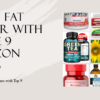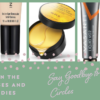Introduction
Introduction
If you’re struggling with acne, you’re definitely not alone. It’s a common skin condition that affects many people, and understanding its causes, symptoms, and treatment options is essential to finding relief.
Acne occurs when hair follicles on the skin become blocked by excess oil, dead skin cells, and bacteria, leading to the formation of various blemishes like blackheads, whiteheads, pimples, cysts, and nodules. Factors such as excess sebum production, clogged hair follicles, bacteria, and inflammation contribute to its development.
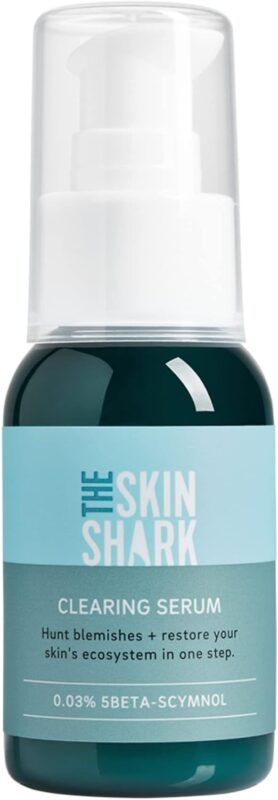
Photo: Amazon
Skin Shark Clearing Serum – For Acne prone skin – Clear breakouts – A triple threat against bacteria, irritated skin and excess oils – Vegan formula – Gentle on the skin and highly effective: Dive into the depths of clear skin with Skin Shark Clearing Serum. Designed especially for acne-prone skin, this serum not only clears breakouts but acts as a triple threat against bacteria, inflammation, and excessive oils. Its vegan formula ensures that you’re not only taking care of your skin but also doing it responsibly. The gentle composition makes it perfect for those who have sensitive skin, ensuring effective results without any harsh side effects. Ready to see the change?
Acne scars can also occur when these blemishes become inflamed, resulting in indented or raised scars. Luckily, there are various treatment options available, including topical and oral medications, natural remedies, and lifestyle changes.
However, it’s important to consult with a dermatologist, especially for severe or persistent cases of acne, in order to determine the most effective treatment approach for your specific type and severity of acne. With the right care and management, achieving clearer skin is possible.
Key Takeaways
- Topical medications, including benzoyl peroxide, retinoids, antibiotics, and salicylic acid, serve as a primary line of defense against acne by reducing sebum, unclogging pores, and combating bacteria.
- For moderate to severe acne, oral medications such as antibiotics, hormonal treatments, and isotretinoin can be prescribed to tackle the root causes.
- Isotretinoin is a potent treatment for severe, cystic acne, but comes with potential side effects and requires close medical supervision.
- Natural remedies like tea tree oil, aloe vera, honey, and apple cider vinegar offer alternative or complementary options to manage acne, though their efficacy may vary among individuals.
- For optimal skin health and effective acne management, consulting a dermatologist or healthcare professional is advised, especially in severe or persistent cases.
Acne is not just a teenage affliction. While many associate it with puberty, the reality is that it can affect individuals of all ages.
Understanding the underlying causes of acne is the first step to treating it. The symptoms can vary, from minor breakouts to severe cystic acne.
Various treatments, both medical and natural, can alleviate these symptoms. Through this guide, we aim to deepen your comprehension of acne, ensuring you’re equipped with the knowledge to tackle it effectively.
Causes of Acne
Acne is a common skin condition that affects many individuals, and its development can be attributed to several factors. Understanding the causes of acne is crucial in order to effectively manage and treat this condition.
Excess sebum production
One of the primary causes of acne is excess sebum production. Sebum is an oily substance that is produced by the sebaceous glands in the skin. When there is an overproduction of sebum, it can lead to clogged hair follicles and the formation of acne.
Clogged hair follicles
Another factor that contributes to the development of acne is clogged hair follicles. Hair follicles can become blocked by a combination of dead skin cells, excess oil, and other debris. This blockage prevents the normal shedding of skin cells and can result in the accumulation of bacteria, leading to acne.
Bacteria
Bacteria, specifically the presence of Propionibacterium acnes (P. acnes), is a key contributor to acne. When hair follicles become clogged, it creates an environment that is conducive for the growth of bacteria. The presence of bacteria can lead to inflammation and the formation of acne lesions.
Inflammation
Inflammation plays a significant role in the development of acne. When bacteria are trapped within a clogged hair follicle, the body’s immune system responds by sending white blood cells to the area. This immune response triggers inflammation, causing redness, swelling, and discomfort associated with acne.
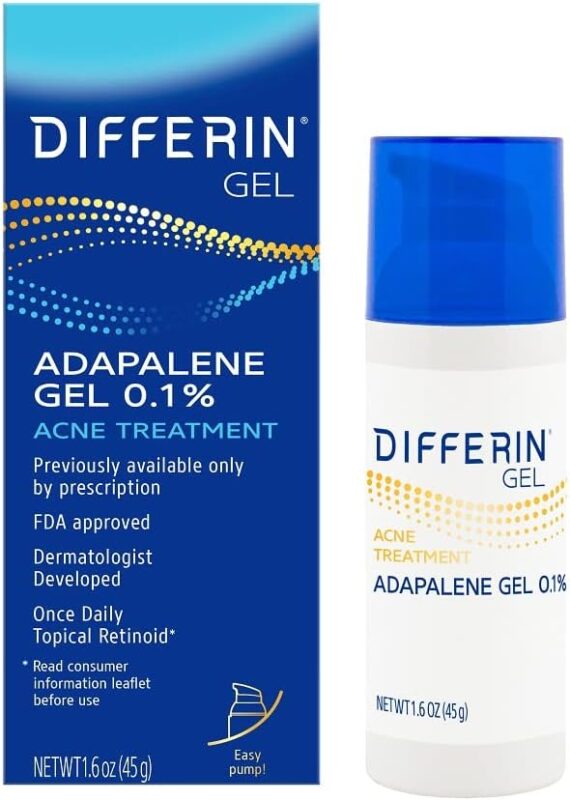
Photo: Amazon
Acne Treatment Differin Gel, 90 Day Supply, Retinoid Treatment for Face with 0.1% Adapalene, Gentle Skin Care for Acne Prone Sensitive Skin, 45g Pump (Packaging May Vary): Introducing a solution tailored for your acne woes: the Acne Treatment Differin Gel. This 90-day supply provides a gentle yet potent retinoid treatment, containing 0.1% Adapalene. Known for its effectiveness on acne-prone and sensitive skin, the gel comes in a user-friendly 45g pump, ensuring an easy application process. While packaging designs may vary, the consistent quality and care you get for your skin remains unwavering. Curious about its transformative potential?
Symptoms of Acne
Acne is characterized by a range of symptoms, and its severity can vary from mild to severe. Recognizing the symptoms of acne is important in order to initiate appropriate treatment and management strategies.
Blackheads
Blackheads, also known as open comedones, are a common symptom of acne. They appear as small black dots on the skin’s surface and are caused by the oxidation of sebum, dead skin cells, and bacteria within a clogged hair follicle.
Whiteheads
Whiteheads, on the other hand, are closed comedones. They appear as small, flesh-colored bumps on the skin. Whiteheads occur when a hair follicle becomes completely blocked by sebum, dead skin cells, and bacteria, resulting in a closed comedone.
Papules
Papules are small, red, inflamed bumps that are often tender to the touch. They occur when there is inflammation within a clogged hair follicle. Papules are a common symptom of acne and can be quite noticeable on the skin’s surface.
Pimples
Pimples, also known as pustules, are similar to papules but with the addition of a visible white or yellow pus-filled center. They can range in size and are often accompanied by redness and inflammation. Pimples are a classic sign of acne.
Cysts
Cysts are larger, pus-filled lesions that go deeper into the skin. They are usually painful and can leave behind significant scarring if not treated properly. Cysts are a severe form of acne and require medical intervention for effective management.
Nodules
Nodules are deep, painful, solid lesions that are typically larger than papules or pustules. They are often accompanied by inflammation and can take a long time to heal. Nodules are considered a severe form of acne and may require more aggressive treatment measures.
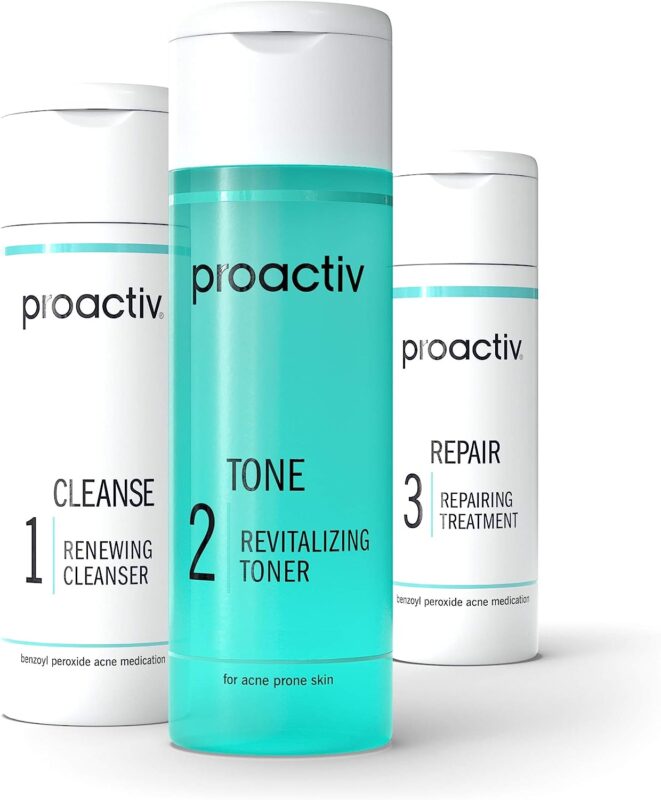
Photo: Amazon
Proactiv Solution 3-Step Acne Treatment System: The power of three comes alive in the Proactiv Solution 3-Step Acne Treatment System. Designed to cater to all your skin needs, this holistic approach addresses the root causes of acne, ensuring lasting results. By targeting various stages of acne formation, this system promises clearer, fresher skin in just a few applications. Give yourself the proactive care you deserve with this innovative acne solution. Interested in revolutionizing your skincare routine?
Types of Acne
Acne can manifest in different forms, and understanding the various types can help determine an appropriate treatment plan. The different types of acne include:
Comedonal acne
Comedonal acne is characterized by the presence of blackheads and whiteheads. It usually affects the forehead, chin, and nose area, commonly referred to as the T-zone. Comedonal acne is often the result of excess sebum production and clogged hair follicles.
Inflammatory acne
Inflammatory acne encompasses papules, pustules, and nodules. It is characterized by redness, swelling, and inflammation. Inflammatory acne can be painful and is typically caused by an immune response to the presence of bacteria within a clogged hair follicle.
Cystic acne
Cystic acne is a severe form of acne that is characterized by the formation of large, painful cysts beneath the skin’s surface. These cysts are filled with pus and can lead to scarring if not properly treated. Cystic acne often requires medical intervention for effective management.
Acne mechanica
Acne mechanica is a type of acne that is triggered by friction, pressure, or heat on the skin. It is commonly seen in athletes or individuals who wear tight-fitting clothing or equipment. The constant rubbing or irritation can clog pores and lead to the development of acne.
Hormonal acne
Hormonal acne is often seen in individuals who experience hormonal fluctuations, such as during puberty, pregnancy, or menstruation. Hormonal changes can increase sebum production and contribute to the development of acne. Hormonal acne is typically seen along the jawline, chin, and lower cheeks.
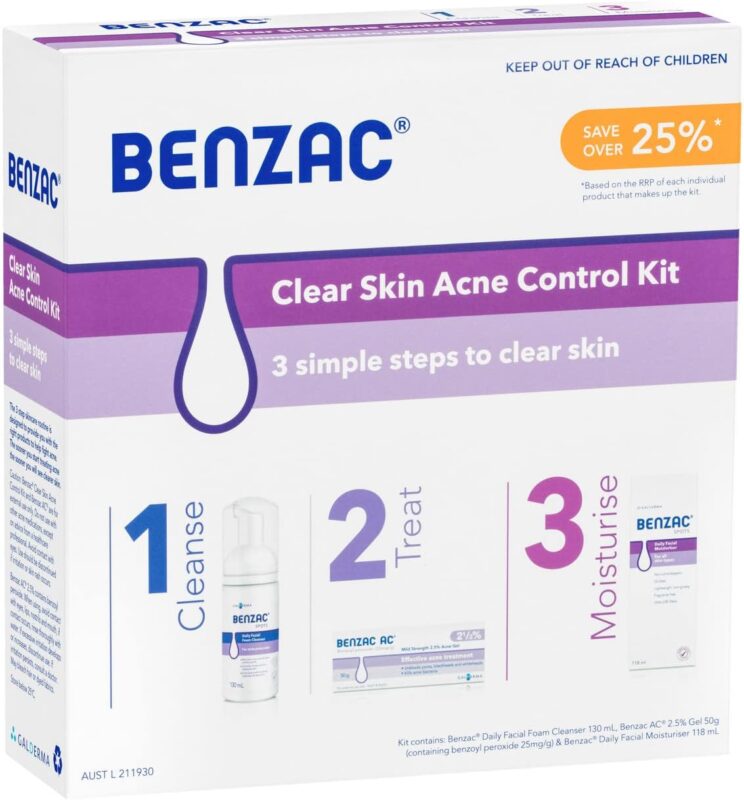
Photo: Amazon
Benzac Clear Skin Acne Kit, 450 ml Pack of 3: Experience the magic of Benzac with the Clear Skin Acne Kit. This pack of three offers an all-encompassing solution to banish acne and maintain flawless skin. With a generous 450ml size, it ensures that you have a lasting supply to keep those pesky pimples at bay. Trust in the tried and tested power of Benzac and embrace the skin you’ve always dreamt of. Ready to take the leap towards impeccable skin?
Factors that Contribute to Acne
While the specific causes of acne can vary, several factors have been identified as contributing to its development. These factors include:
Hormonal changes
Hormonal changes, particularly during puberty, can trigger the onset of acne. The increase in hormone levels, such as androgens, can stimulate the sebaceous glands to produce more sebum. This excess sebum can lead to clogged hair follicles and the development of acne.
Genetics
Genetics also plays a role in the development of acne. If you have a family history of acne, you may be more prone to developing this condition. Certain genetic factors can influence sebum production, inflammation response, and the overall susceptibility to acne.
Diet
Diet has long been implicated as a potential trigger for acne. While the link between diet and acne is still being researched, some studies suggest that certain foods, such as high-glycemic-index foods and dairy products, may exacerbate acne symptoms in susceptible individuals.
Stress
Stress is known to have an impact on various aspects of health, including the skin. When you’re under stress, your body releases stress hormones, such as cortisol, which can increase sebum production and contribute to the development of acne.
Environmental factors
Environmental factors, such as pollution and exposure to certain chemicals, can also contribute to acne. Environmental pollutants can clog pores and irritate the skin, leading to acne breakouts. Additionally, certain skincare products or cosmetics that are not compatible with your skin type can trigger acne.
Understanding Acne Scars
Acne scars can form when acne lesions become inflamed and damage the underlying layers of the skin. Acne scars can have a significant impact on an individual’s self-esteem. It is important to understand the two main types of acne scars:
Indented scars
Indented scars, commonly known as atrophic scars, are depressions or pits in the skin that result from the loss of tissue during the healing process. These types of scars are commonly seen with severe acne, such as cystic acne. Indented scars can be shallow or deep, and their appearance can vary depending on the individual.
Raised scars
Raised scars, also known as hypertrophic or keloid scars, occur when there is an overgrowth of tissue during the healing process. These scars can appear as raised, firm bumps on the skin’s surface. Raised scars are more common in individuals with a genetic predisposition to scar formation.
Any Questions🤔?
Reach out to us! We’re here to clarify and prioritize your well-being. 🌟
Determining the Severity of Acne
In order to effectively treat acne, it is important to determine its severity. The severity of acne can range from mild to severe, and it is often assessed based on the number and type of lesions present. The following are the three main categories used to determine the severity of acne:
Mild acne
Mild acne is characterized by the presence of blackheads, whiteheads, and a few papules or pustules. The lesions are typically small in size and confined to a specific area. Mild acne can often be managed with over-the-counter topical treatments and good skincare practices.
Moderate acne
Moderate acne is characterized by a larger number of papules and pustules compared to mild acne. The lesions may be more widespread and can be accompanied by occasional nodules. Moderate acne may require a combination of topical and oral medications to effectively manage the condition.
Severe acne
Severe acne is characterized by the presence of numerous papules, pustules, nodules, and potentially cysts. The lesions may be widespread and deeply inflamed. Severe acne often requires medical intervention and may be treated with oral medications such as antibiotics or isotretinoin.
Topical Medications for Acne
Topical medications are commonly used as a first-line treatment for acne. These medications are applied directly to the skin and work by reducing sebum production, unclogging pores, and fighting bacteria. Some of the most commonly used topical medications for acne include:
Benzoyl peroxide
Benzoyl peroxide is an effective topical medication for acne that works by killing bacteria, reducing inflammation, and unclogging pores. It is available over-the-counter in various strengths and can be used as a spot treatment or applied to larger areas of affected skin.
Retinoids
Retinoids are derivatives of vitamin A and are commonly used to treat acne. They work by promoting the turnover of skin cells, preventing the formation of new blockages within hair follicles, and reducing inflammation. Retinoids are available in both prescription and over-the-counter formulations.
Topical antibiotics
Topical antibiotics, such as clindamycin or erythromycin, are often prescribed to treat acne. These medications work by killing the bacteria that contribute to acne breakouts. Topical antibiotics are usually used in combination with other acne treatments to reduce the development of antibiotic resistance.
Salicylic acid
Salicylic acid is a beta hydroxy acid that is commonly found in over-the-counter acne treatments. It works by exfoliating the skin and unclogging pores. Salicylic acid can be found in various forms, such as cleansers, toners, and spot treatments.
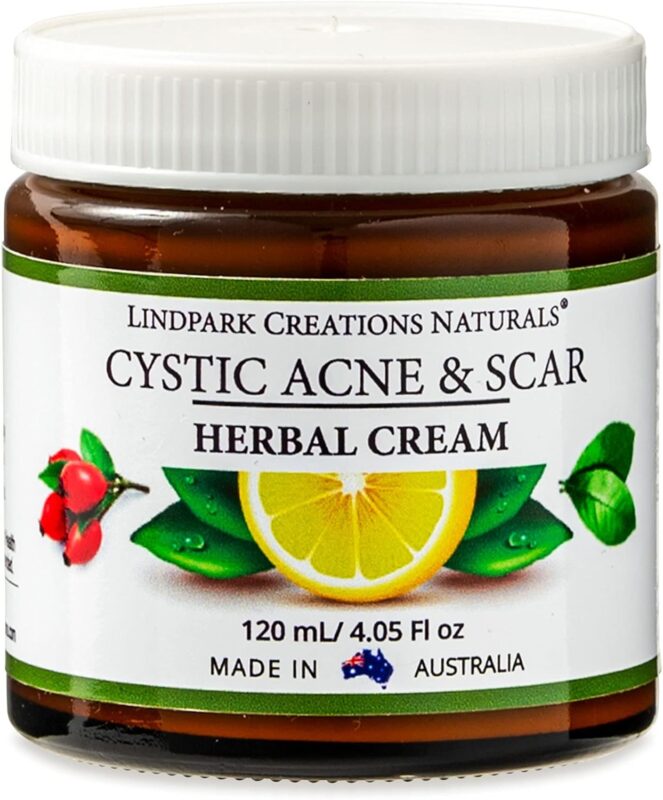
Photo: Amazon
Cystic Acne & Scar Treatment Cream X Strong Tea Tree Oil, Green Tea, Rosehip, Lavender, Vitamin E and Aloe Vera for Pimples, Blackheads, Milia in Adult or Teen: Face, Back 120ml: Embrace the natural way to clear skin with the Cystic Acne & Scar Treatment Cream. Infused with the strength of tea tree oil, green tea, rosehip, lavender, vitamin E, and aloe vera, this cream promises a powerful yet gentle touch. Whether it’s cystic acne, blackheads, or scars, this remedy works wonders on a variety of skin concerns, whether for teens or adults. Say goodbye to imperfections and welcome radiant skin. Intrigued by its natural prowess?
Oral Medications for Acne
In some cases, topical medications may not be sufficient to effectively manage acne, especially when dealing with moderate to severe forms. Oral medications can be prescribed to target the underlying causes of acne and reduce its severity. Some common oral medications used for acne include:
Antibiotics
Oral antibiotics, such as doxycycline or minocycline, are frequently prescribed for moderate to severe acne. These antibiotics work by reducing the bacteria that contribute to acne and reducing inflammation. Oral antibiotics are usually used for a limited period of time to minimize the development of antibiotic resistance.
Hormonal medications
Hormonal medications can be effective in managing acne that is related to hormonal imbalances, such as in cases of hormonal acne or polycystic ovary syndrome (PCOS). These medications, such as oral contraceptives or anti-androgens, work by regulating hormone levels and reducing sebum production.
Isotretinoin
Isotretinoin, also known as Accutane, is a powerful oral medication used to treat severe, cystic acne that has not responded to other treatments. It works by reducing sebum production, preventing the formation of new acne lesions, and minimizing inflammation. Isotretinoin can have significant side effects and requires close monitoring by a healthcare professional.
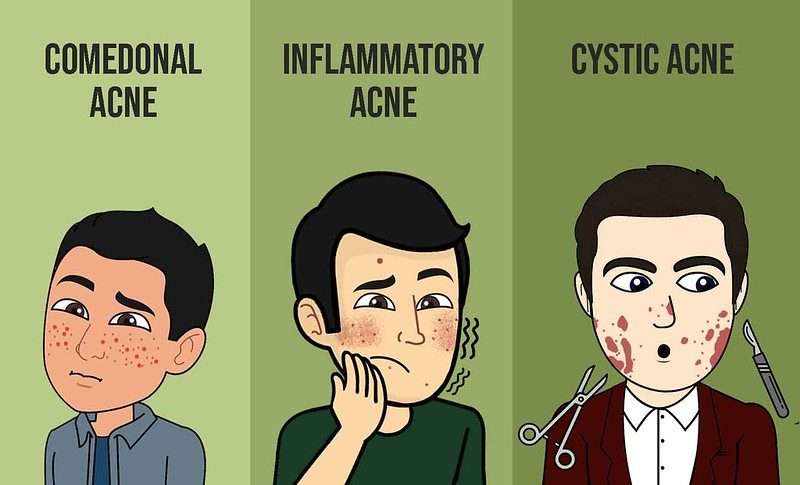
Natural Remedies for Acne
In addition to conventional treatments, there are several natural remedies that can be used to complement acne management. While the effectiveness of these remedies can vary, some individuals may find them helpful in reducing acne symptoms. It is important to note that natural remedies may not work for everyone, and it is advisable to consult with a healthcare professional before using them. Some natural remedies for acne include:
Tea tree oil
Tea tree oil has natural antibacterial properties and can be used topically to fight acne-causing bacteria. It is important to dilute tea tree oil before applying it to the skin to avoid irritation. It can be used as a spot treatment or added to skincare products in small amounts.
Aloe vera
Aloe vera has soothing and anti-inflammatory properties that can help reduce redness and inflammation associated with acne. Applying aloe vera gel to the affected areas can provide relief and promote healing. It is best to use pure aloe vera gel without added fragrances or chemicals.
Honey
Honey has antimicrobial properties and can help fight bacteria on the skin. Applying raw, organic honey to acne lesions and leaving it on for a short period of time can be beneficial. However, it is important to note that honey can be sticky and may not be suitable for all skin types.
Apple cider vinegar
Apple cider vinegar is known for its antimicrobial and exfoliating properties. It can be diluted with water and applied as a toner to the skin. It is important to test on a small area of the skin first, as undiluted vinegar can be too harsh and irritating.
FAQ (Frequently Asked Question)
Q: What are the main topical medications for acne?
A: The main topical medications include benzoyl peroxide, retinoids, topical antibiotics, and salicylic acid.
Q: Why might someone need oral medications for acne?
A: Oral medications target the underlying causes of acne and are prescribed for moderate to severe cases not responsive to topical treatments.
Q: What natural remedies can complement conventional acne treatments?
A: Some natural remedies include tea tree oil, aloe vera, honey, and apple cider vinegar.
Q: How does isotretinoin work and why is it closely monitored?
A: Isotretinoin reduces sebum production, prevents the formation of new acne lesions, and minimizes inflammation. It has significant potential side effects and requires close medical supervision.
Q: Why is it important to consult a dermatologist or healthcare professional for acne?
A: Especially in severe or persistent cases, a professional can provide a comprehensive evaluation and a personalized treatment plan, ensuring safe and effective management.
Conclusion
Acne is a common skin condition that affects many individuals, but it is important to remember that it is treatable. Understanding the causes, symptoms, and types of acne can help in determining the most appropriate treatment approach. With the proper care and management, it is possible to achieve clearer skin.
It is recommended to consult with a dermatologist or healthcare professional for a comprehensive evaluation and personalized treatment plan, especially for severe or persistent cases of acne. Additionally, adopting a good skincare routine, making dietary and lifestyle changes, and practicing stress management can also contribute to overall skin health and reduce the frequency and severity of acne breakouts.
Remember, everyone’s skin is unique, and it may take some trial and error to find the combination of treatments and remedies that work best for you. With patience and perseverance, you can successfully manage and improve your acne-prone skin.
Disclaimer
Please keep in mind that nothing said here should be construed as a substitute for professional medical or financial advice from a qualified financial advisor or a licensed healthcare provider. If you use pharmaceuticals or have concerns after reading the above review information, be sure to speak with a qualified physician or financial expert before making any purchasing decisions. Since the claims made about these products have not been reviewed by the Food and Drug Administration or Health Canada, individual outcomes may differ and cannot be guaranteed. Research that has been approved by the FDA or Health Canada has not attested to the efficacy of these products. These goods do not offer any form of get-rich-quick scheme and are not designed to diagnose, treat, cure, or prevent any ailment. The reviewer disclaims all liability for incorrect pricing. For exact prices, view the product sales page


